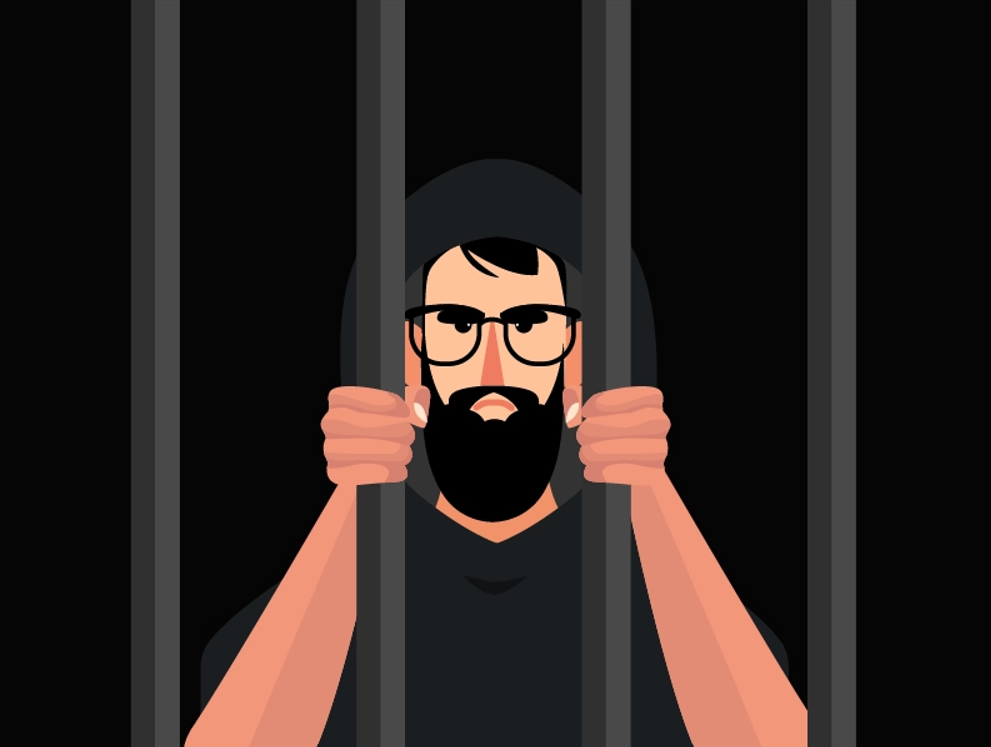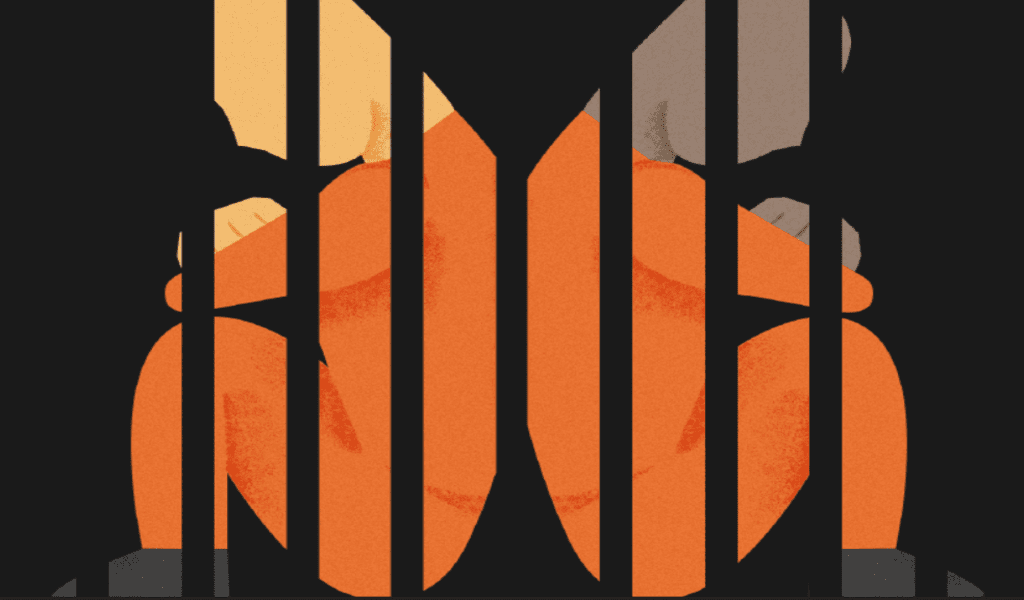
The vast expansion and improvement of the legal system demonstrate that India is a welfare society. There are several instances where the government, whether intentionally or unintentionally, fails to meet its obligations. Human rights violations of this nature are known as egregious violations of human rights. A civilized society is a necessary component of any peaceful, law-abiding country. The idea of natural justice must be upheld by the government. Those who are wrongfully convicted face a variety of consequences. And everyone knows that in India, arbitrary arrests, unjust convictions, and the imposition of preventative imprisonment on anyone are nothing new.
Article 14(6) of the International Covenant on Civil and Political Rights makes it necessary for all the nations around the world to have a legal framework for providing compensation and rehabilitation to those who have been wrongly imprisoned by the state. This provision has been adopted by many nations all over the world but India is still lacking in this part which is otherwise a party to this treaty. India’s criminal justice framework overflows with conditions that can wrongfully deny citizens their right to freedom.
The wrongdoing or the misconduct of investigative agencies, poor investigative skills, political pressure and criminal biases towards specific segments of the population, a gigantic backlog in the judiciary, as well as a highly separated admittance to justice, are only a couple of examples. The present study seeks to examine the legal framework in India to protect wrongly imprisoned persons. The article is an attempt to show how innocent people have languished in jails for many years and still, there are no laws to compensate or to protect them.
What is Wrongful Imprisonment?
Wrongful imprisonment is also known as false imprisonment which means to forcibly detain or restrain a person without his consent or without giving any justification to him. False imprisonment is a precedent-based law offense and a tort. It applies to private as well as governmental confinement. It is managed as wrongful confinement in the Indian Penal Code under Section 342. For detainment, it isn’t required that the individual should be put behind the bars, however, he should be restricted in such a region from where there are no potential methods of escape with the exception of the desire of the individual who is keeping the individual to that space. It isn’t the degree of the detainment that is important however it is the shortfall of legitimate power to legitimize unlawful detention which is of pertinence. The internment and non-development of any property, i.e., goods is likewise viewed as a piece of the idea of false imprisonment.
False imprisonment is the arrest of the person by the cop or private individual without legitimate power. False arrests and wrongful detainment are for all intents and purposes unclear besides in their phrasing and have been held by the courts as a single tort. False imprisonment is an intentional tort, similar to those of assault, battery, unlawful confinement, and intrusion of privacy. These are named as torts of trespass to an individual.
The defense to false detainment incorporates consent of the affected party or intentional supposition of the danger, reasonable justification, and contributory negligence. The defense of consent of the affected party and reasonable justification are complete defenses while the defense of contributory negligence is utilized distinctly for relief of harms. Reasonable consideration and acting in good faith are no defenses for this tort.
Essential Elements for Wrongful Imprisonment
- Time period of Confinement: The tort of false imprisonment emerges from anything that might be the time of confinement. In any case, the time span is of substance while deciding the measures of compensation that are to be granted to the harmed party. A generally lawful detainment might become unlawful in the event of confinement when it is delayed for a nonsensical timeframe.
- The Intention Factor: Typically the tort of false or wrongful detainment should be purposeful. An individual isn’t obligated for false imprisonment except if their act ruined the motivation behind overwhelming a control or with information that such a restriction, to a significant sureness will result from it. Malice is not essential to this tort. It is conventionally for the judge to decide from the proof, as an issue of reality, the goal of the defendant in an activity for false imprisonment. Indeed, even careless or negligent acts can qualify as false imprisonment. For instance, assuming an individual locks somebody inside a room without being uninformed about the way that there is somebody in the room then he is expected to be held liable for false imprisonment.
- Knowledge of the Plaintiff: There is no prerequisite that the affected party alleging wrongful imprisonment knew about the limitation on his opportunity at the hour of his imprisonment. If the individual is restricted in a room, with one of the sections known to the affected party shut, and the room has more than one passage leave entryway, yet the offended party has no information about something similar, the defendant will, in any case, be expected to be held liable. Hence, the individual bound doesn’t need to know about the restriction or be harmed by it as it is noteworthy essentially.
- Spot or place of Confinement: To constitute some wrong, there might be no real detainment in the customary sense – for example Imprisonment.
Any repression in the customary sense whether be it jail or any spot utilized briefly with the only goal of restriction establishes false imprisonment. Unlawful detention also sums to false imprisonment. It is sufficient that the offended party in any way has been totally denied of his freedom, for any time, but short.
To establish detainment the deprivation of the offended parties’ freedom should be completed, that is there should be on each side of him a limit drawn past which he can’t pass. It isn’t detainment to keep the offended party from heading in specific ways assuming he is allowed to veer off and along these lines, there will be no activity for wrongful imprisonment(Partial Restraint). On the off chance that an individual has initiated one more to place oneself in a spot which is difficult to leave without such people help, by words or by other direct means, the refusal to give such help, or to keep the other is an adequate demonstration of confinement to make such individuals liable.
Is Wrongful Imprisonment a violation of Human Rights?

The tort of false imprisonment means a type of human rights violation as it puts a requirement on the freedom of an individual totally. The activity of false imprisonment brings about responsibility in torts and it is a criminal offense too. Of late, the idea of false imprisonment has become critical in India as it straightforwardly targets abusing basic liberties via limiting the individual’s right to freedom and movement that is given under Article 19(1) of the Indian Constitution which states that all citizens have the right to move freely throughout the territory of India and Article 21 that saves the individual freedom of a person. Consequently, instances of false or wrongful imprisonment require tough laws for directing the wrongdoers.
Prisoners Rights: It was first held in The Court of Appeal in Davidson vs Chief Constable North Wales, if an individual is legally detained in jail and is exposed to torture and kept in unbearable physical conditions, it will make his detainment in the jail unlawful and the detainee concerned will reserve an option to sue the jail experts for false imprisonment. Thus, this case established the framework of the way that even detainees in a prison can use the idea of false imprisonment and sue the concerned experts for abuse and torture.
In India, the main case taking care of the freedoms of the detainees or the prisoners is D.K.Basu v. State of West Bengal, In this milestone case the appellants mentioned an objection about the unbridled police powers in the prisons among a few different issues. The Hon’ble Supreme Court in this landmark judgment held that brutal acts done on detainees including torture that frequently lead to death goes against the Rule of Law.
Do we need a separate law for the wrongly imprisoned?
When a case is filed in India, it travels from the District Court to the country’s highest court, the Supreme Court, which is a long and complicated process. The long-pending cases and the complicated procedural requirements set by the judiciary make it extremely difficult for the victims to seek a remedy, and this approach has aggravated the problem. Beyond the procedural principles imposed by the judiciary, the State must find something unique. A thorough transformation policy should be implemented to raise legal knowledge among all the segments of society. Justice delayed is justice denied, and it plainly shows that the state and the judiciary are equally responsible for the victim’s plight.
In a recent case of wrongful arrest of Dr. Kafeel Khan who is a lecturer at BRD Medical College, was released after a period of seven months in September 2020. He was charged under the National Security Act of 1980 for undermining public order. The Hon’ble Allahabad High Court in this case concluded by saying that Dr. Kafeel Khan was denied his right to freedom for the period of seven months even after there was no proof found against him.
In the case of Babloo Chauhan Dabloo v. State Government of NCT of Delhi, the Hon’ble High Court of Delhi stated the inability of an established legal foundation for providing a remedy to the affected parties or victims of wrongful detention. The Court in this case also requested the Law Commission of India to deal with this matter and conduct detailed research on the same.
The Court in many cases stated that the victims who suffered due to wrongful prosecution or wrongful imprisonment due to the faults in investigation deserve to be compensated at the earliest.
Conclusion
It can be concluded by saying that this is one of the serious issues and the most severe type of human rights violation. Even though there are several remedies like action for damages, punitive damages, nominal and compensatory damages, self-help, and writ of habeas corpus but still there is no specific legislation to cope with this issue. Article 21 of the Indian Constitution provides that every citizen has the right to life with dignity including the prisoners and it cannot be abrogated or taken away from them. The fact that a person has been convicted for an offense does not mean that the jail authorities can torture him.
In India, there are many people who are wrongfully convicted or languishing in jails for many years but till not due to the lack of accountability of the government and police authorities they did not get justice. This fact cannot be denied that the Indian legal procedure is too lengthy and takes a lot of time to settle a case which is also a lacuna on the part of the judicial system. The Government should bring some effective legislation to deal with this issue which comes under the most serious type of human rights violation.